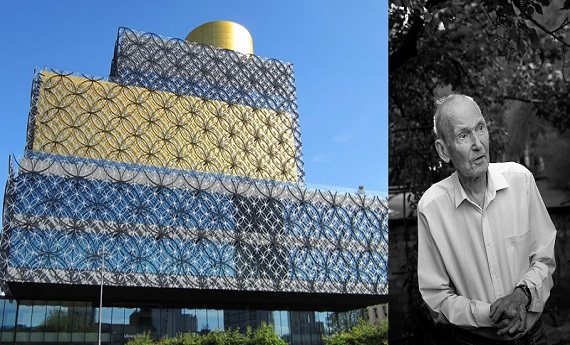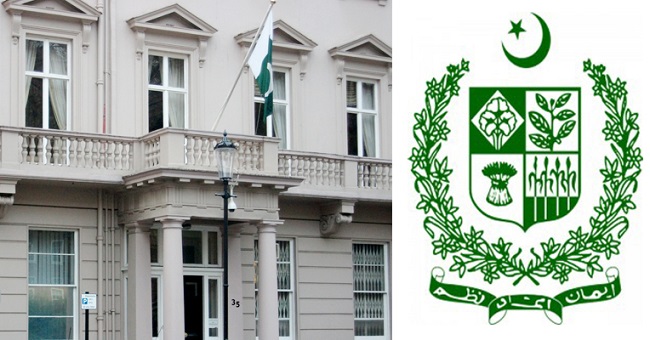Rampant Human Rights Violations in Sindh by Pakistan Should Stop – World Sindhi Congress
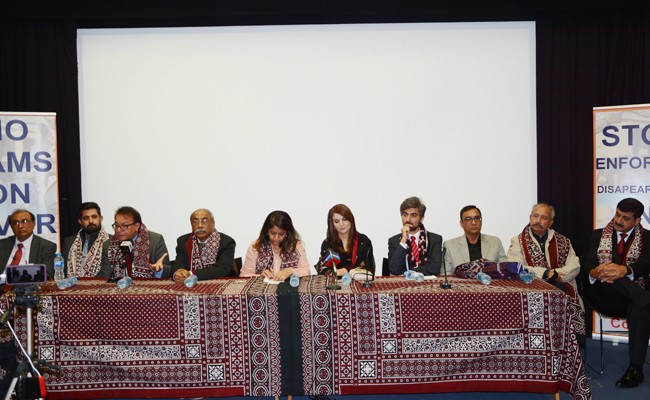
LONDON, UK, The current situation in Sindh is marked by continuous human rights violations and an environment of fear and oppression. The Sindhi people are facing immense violence at the hands of Pakistani state security agencies. Enforced disappearances and extrajudicial killings of political and human rights activists have steadily risen. The inconsiderate implementation of the China Pakistan Economic Corridor (CPEC) continues. In recent months there has been a cavalier propagation of dams on river Indus by all the components of the state machinery in a bizarre fashion. It is clear that Sindhi people will be disproportionally and negatively impacted by these projects, including infringement on their lands, misappropriation of their resources, and undermine their survival. The Pakistani state and its selected Prime Minister have announced plans to give citizenship to millions of refugees with the sole purpose to convert Sindhis in to minority in their thousand’s year-old motherland. Additionally, as religious extremism continues to rise in Pakistan and more madrassas are built in Sindh, the exodus and atrocities against Sindhi Hindus increase.
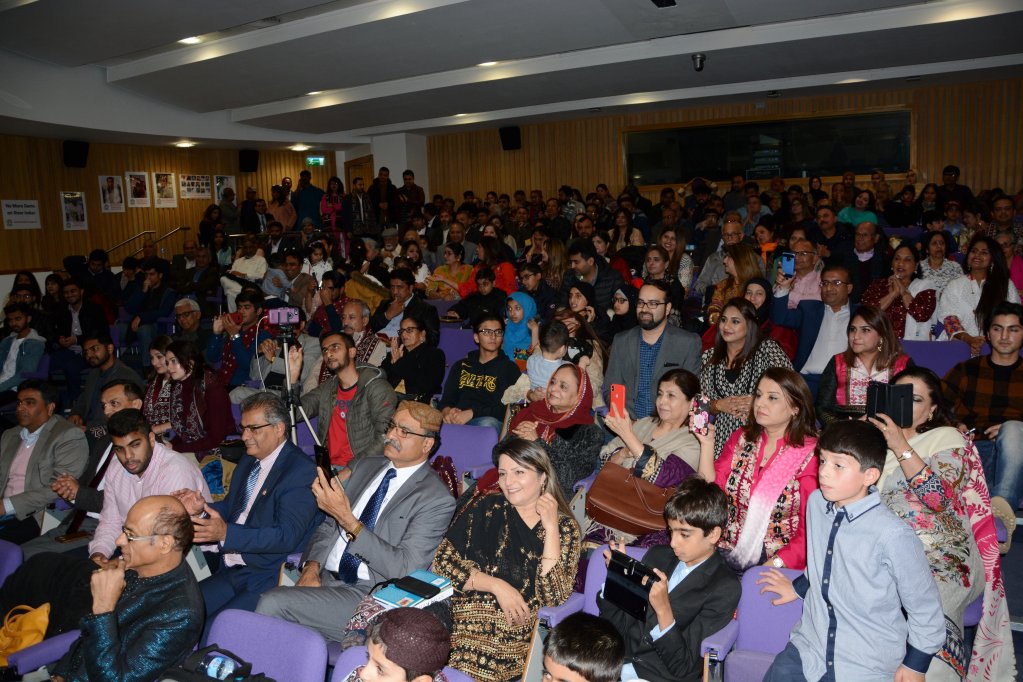
These issues were the focus of the 30th International Conference on Sindh held at the University of Westminster, London, on October 27th, 2018. The conference is organized annually by the World Sindhi Congress (WSC), a human rights advocacy group, based in the UK, USA, Canada, and Sindh. More than 200 delegates attended from different parts of UK, EU, USA, Canada, India, Bangladesh, Afghanistan, Balochistan and Sindh.

Nineteen learned panelists made their contributions on wide-ranging issues related to the themes of the conference in three sessions: ‘Struggle for Human Rights and Working Together,’ ‘Misappropriation of Natural Resources and Environmental Justice’ and ‘Human Rights Situation and Enforced Disappearances’
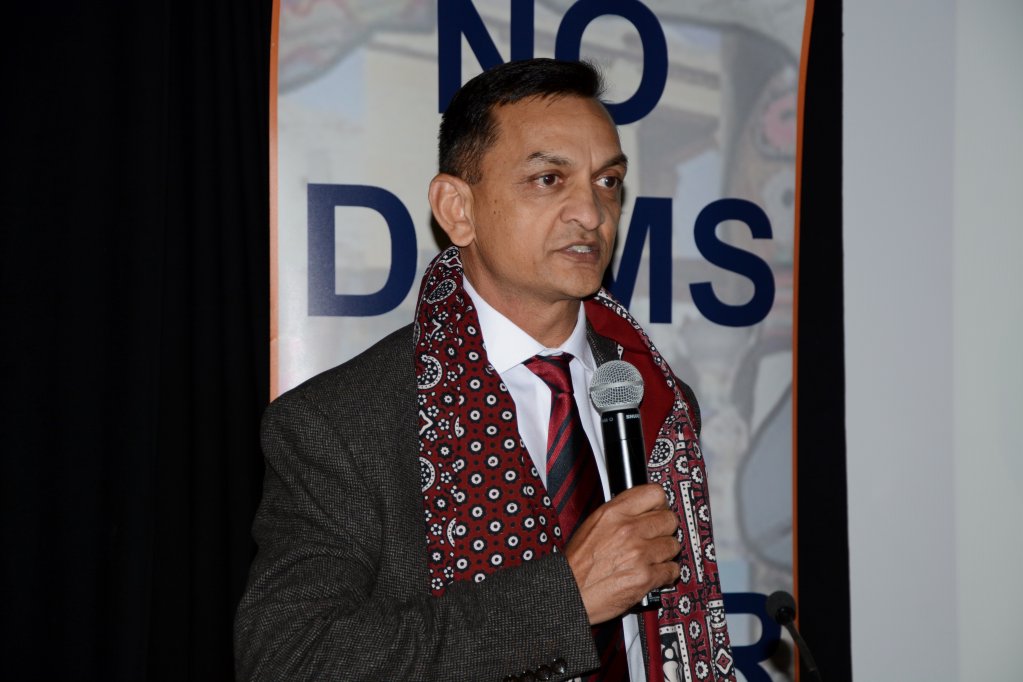
Dr. Hassan Abass, a Water Management expert, presented a solid scientific argument against the building any mega-dams on the River Indus. Dams and canals in the upper riparian on River Indus has drastically damaged the Indus Delta, and its revival shall be an essential objective of any future water project on Indus River Building dams make no economic sense considering their humungous cost, their adverse impact on ecology and their extremely low efficiency to generate cheaper power.
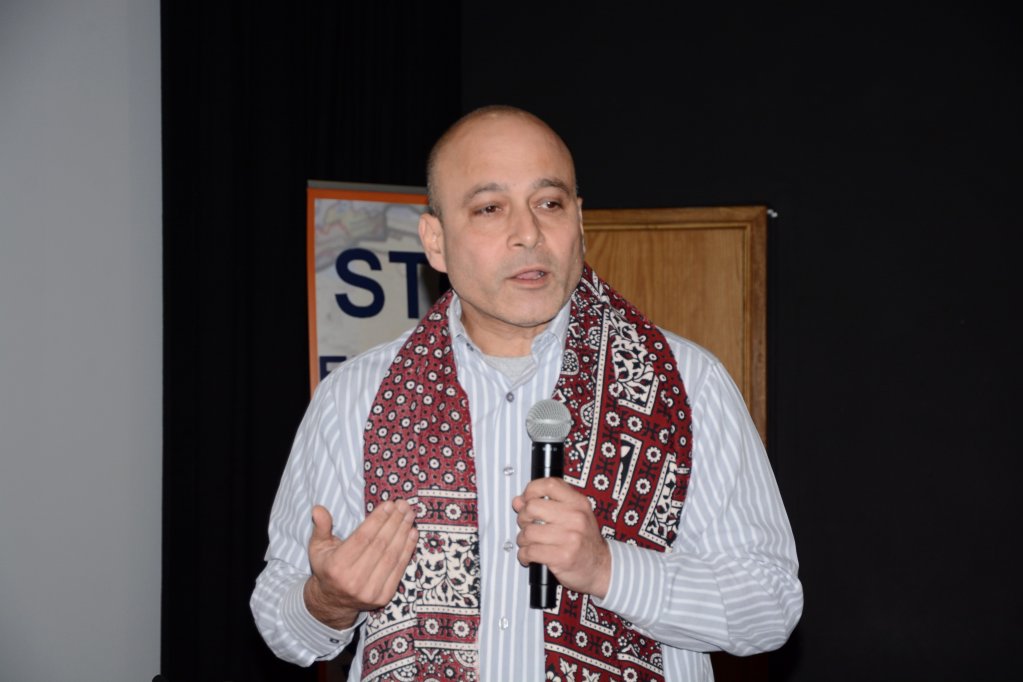
Dr. Daanish Mustafa of Kings College, London, said the misappropriation of water resources is grossly unjust. He said we should change the frivolous narrative of building dams to the real issue of drinking water and sanitation as well as the generation of power through sustainable means.
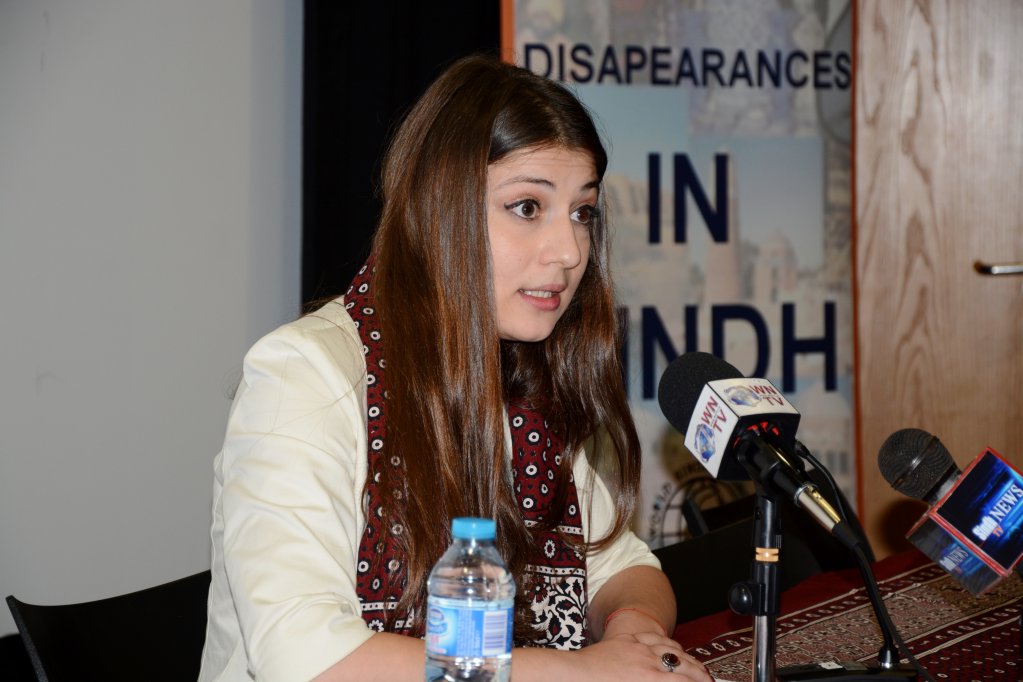
Ms. Yoana Barakova, a researcher from Netherlands based the European Foundation for South Asian Studies (EFSAS), presented her paper on the critical analysis of CPEC projects and its economic and political repercussions for the Peoples of Pakistan, especially Gilgit, Sindhi, and Balochistan.
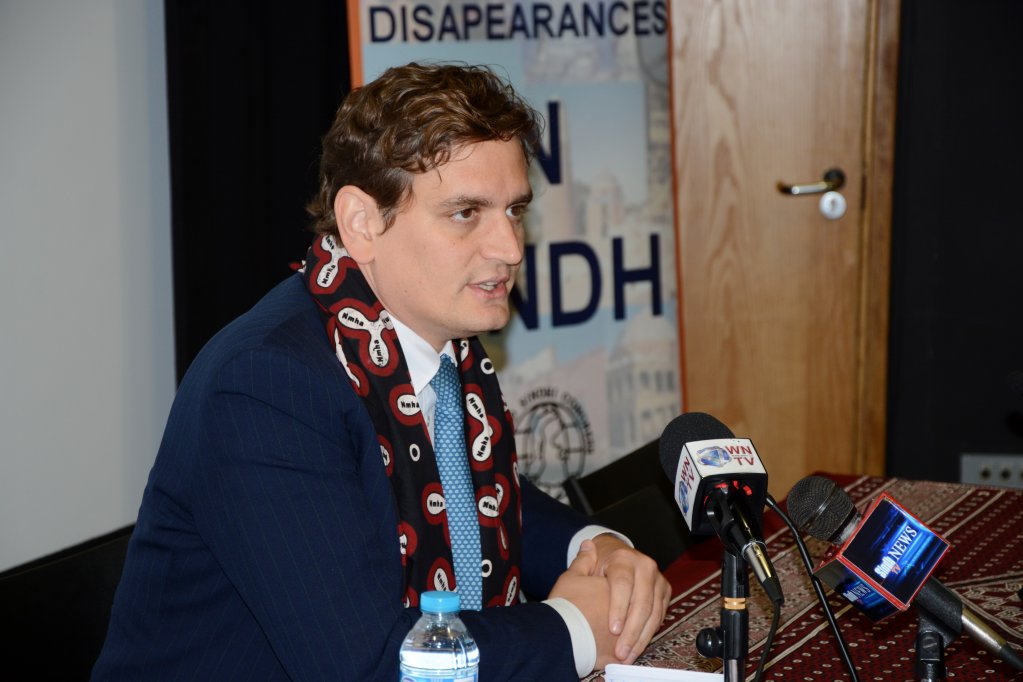
Mr. Ralph Bunche, the Secretary-General of the Unrepresented Nations and Peoples’ Organization (UNPO) called for the restoration of the social, cultural and political rights of Sindhi Nation. Mr. Bunche called for the granting of the Right to Self-Determination for Sindhi Nation as it provides critical protection from being exploited in the federal unions. World Sindhi Congress represents the Sindhi Nation in UNPO.
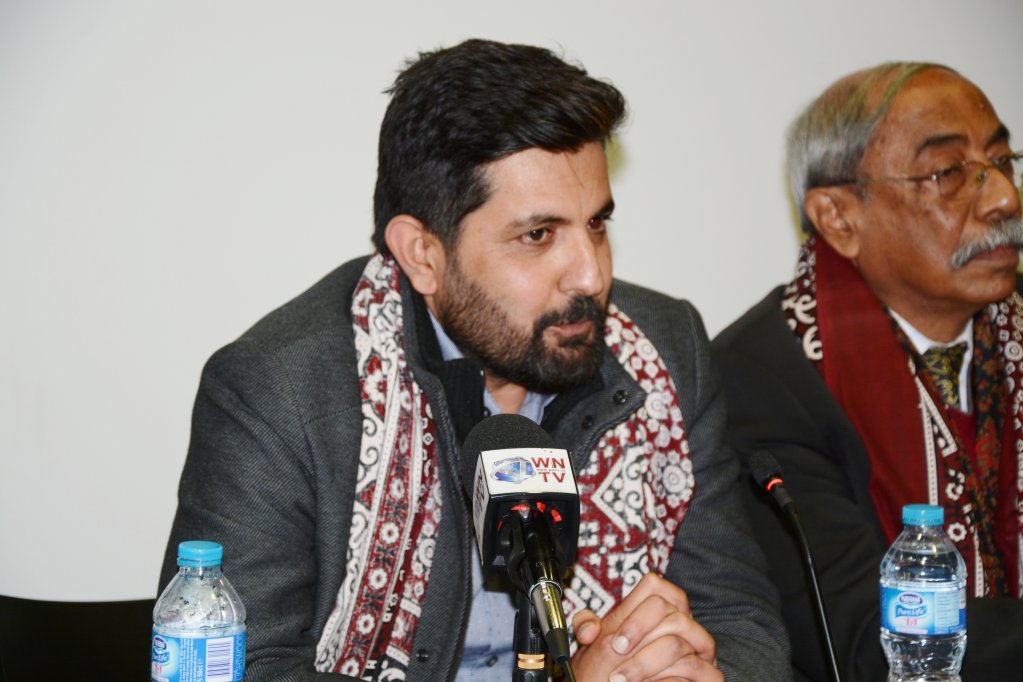
Hamaal Haider, International Spokesperson of the Baloch National Movement (BNM), condemned Pakistan’s systematic killing of Baloch political workers and usurping of Baloch lands and natural resources.. Mr. Hamaal said thousands of Baloch and hundreds of Sindhi workers are still missing. He called for the freedom of Balochistan as an only way forward for the salvation of Baloch Nation.
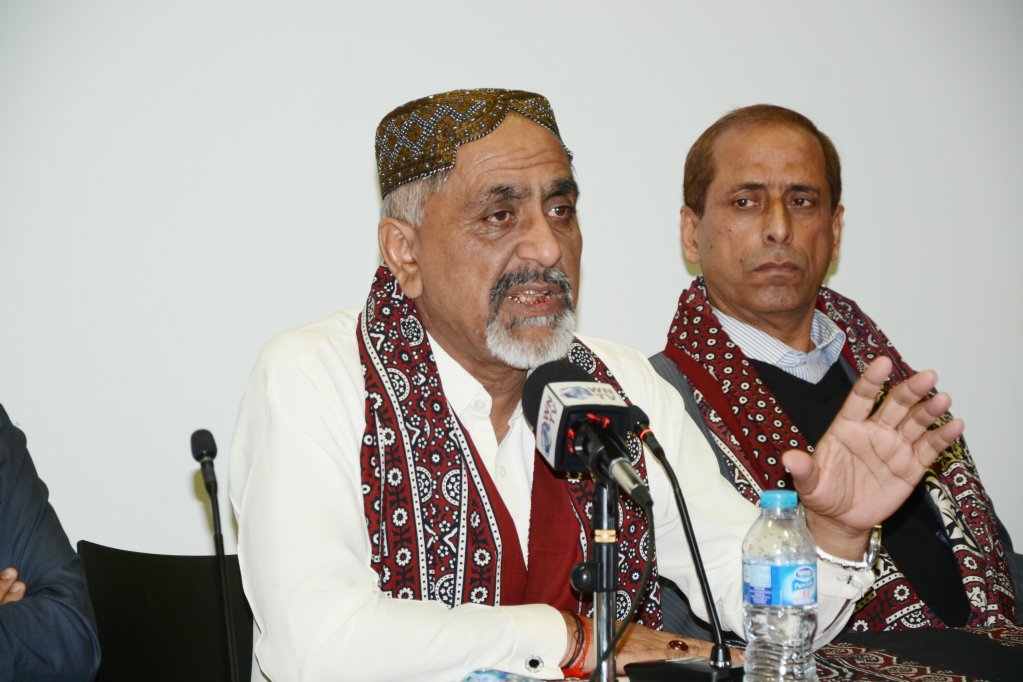
Mr. Kirshan Sharma, a Minority Rights activist from Sindh, presented the painful account of atrocities and violence being carried out against Sindhi Hindus. Forced conversion of Sindhi Hindu girls, sometimes as young as 11 and kidnapping of Hindus and attacks on the places of worship. Mr. Sharma said that Pakistan has become an extremely unbearable place for non-Muslims.
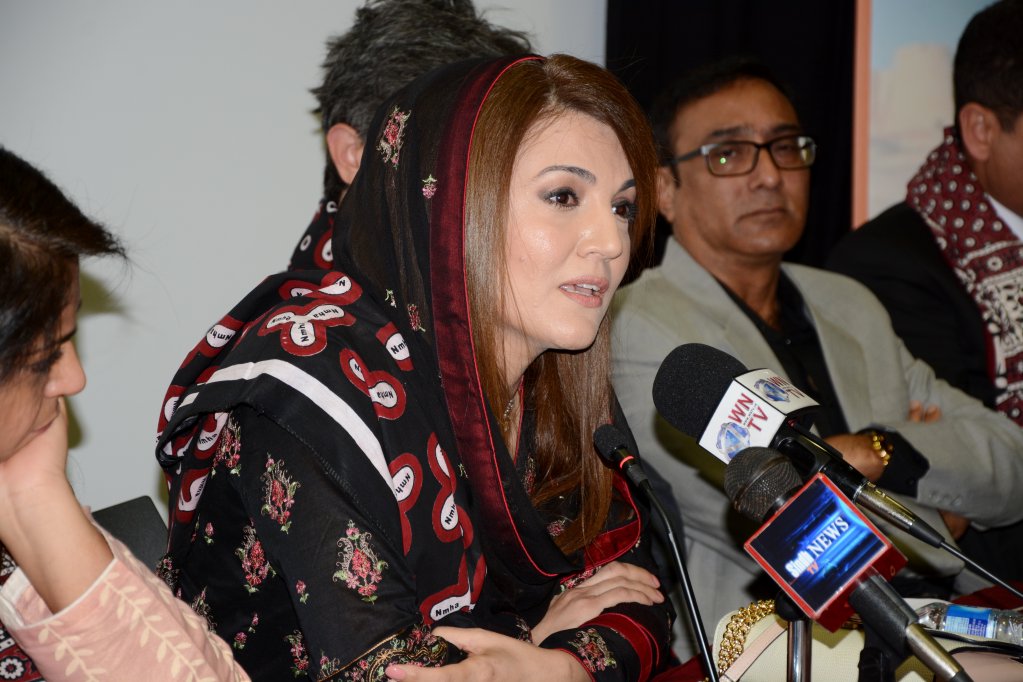
Ms. Reham Khan, an internationally known journalist, writer, and social activist voiced her concern over the human rights abuses in Sindh especially the issue of enforced disappearances. She called for the immediate release of the thousands of Pashtuns, Balochs and Sindhis who have been the victims of enforced disappearance to be released immediately. She said current government seems to have neither will nor a plan to remedy such rampant human rights violations.
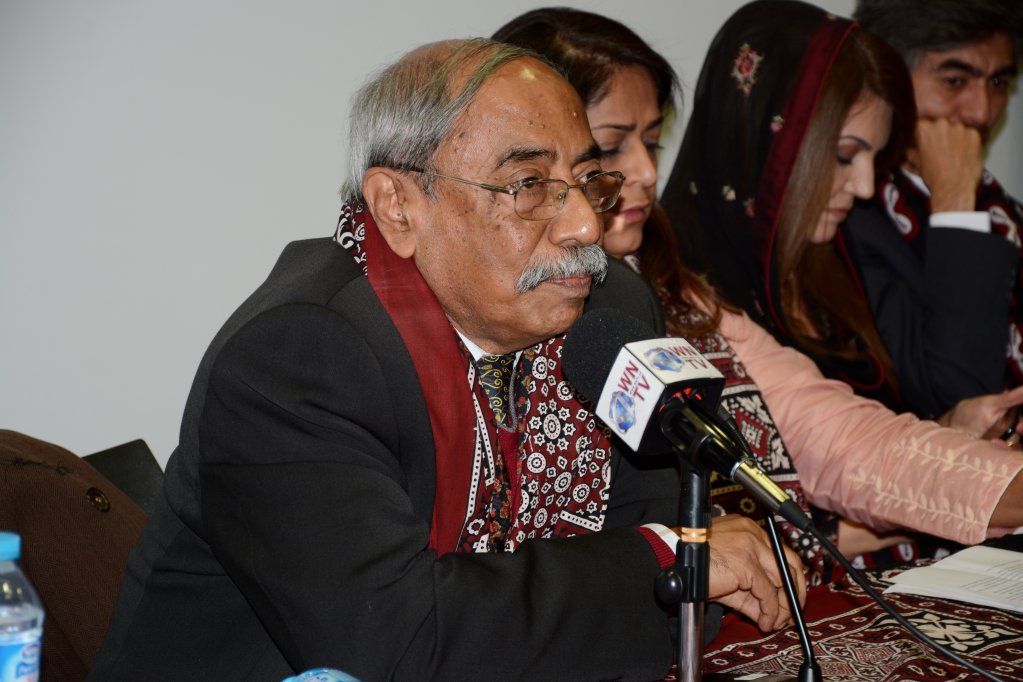
Mr. Shahriar Kabir, a renowned writer and human rights defender from Bangladesh, said that injustices done to Sindhis and Balochs are no different than what were inflicted upon Bangladeshis in earlier days which led to the freedom movement in Bangladeshis. He sad such practices are still happening in Pakistan because the perpetrators were never held accountable. He called for the international inquiry of the genocide committed by Pakistan Military in 1971 atrocities of last f in Bangladesh, Sindh, and Balochistan.
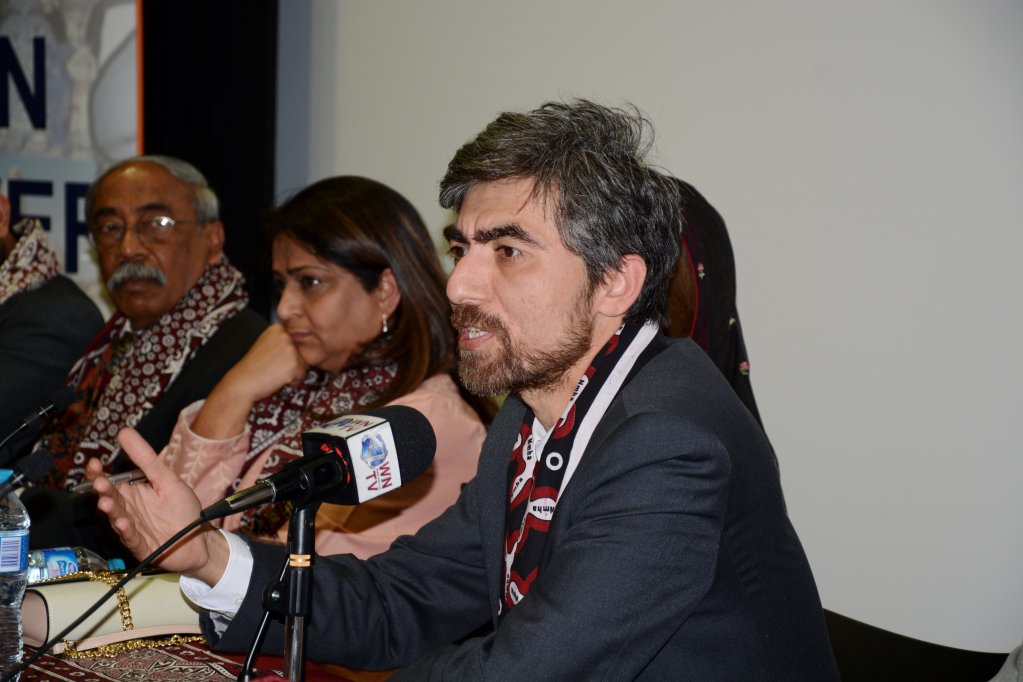
Mr. Atif Tauqeer, a poet and an alternative media activist, who has millions of followers all over the world read his revolutionary poetry highlighting the injustices, hypocrisies in Pakistani society. He got a standing ovation on his bold stand and campaign for the restoration of democracy and social justice in Pakistan.
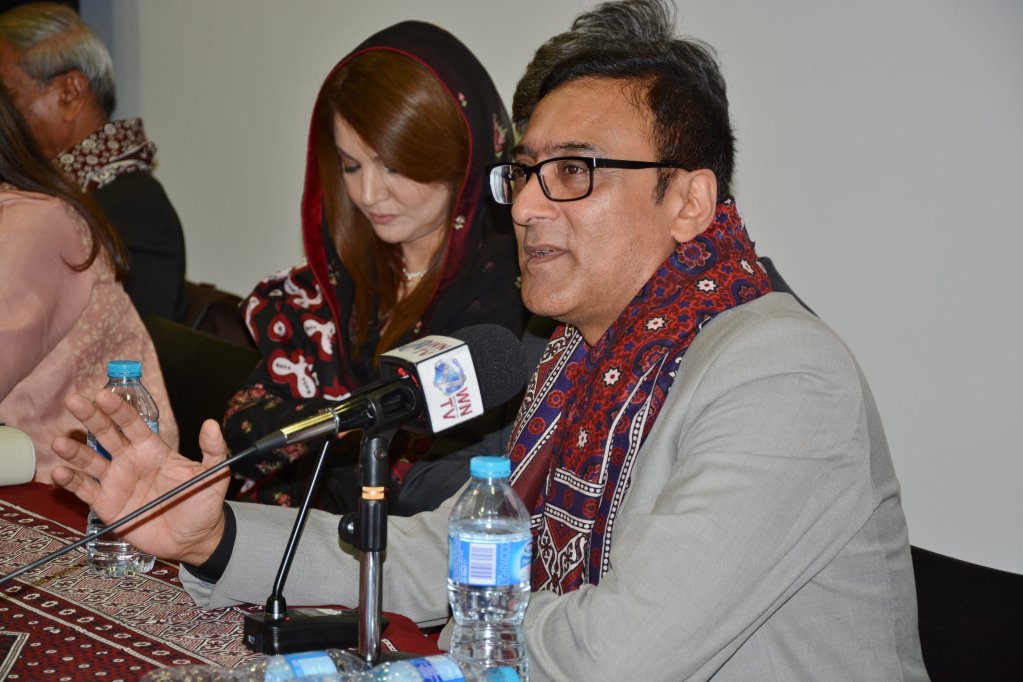
Dr Safdar Sarki, who is the leader of Jeay Sindhi Tehreek, was himself a victim of enforced disappearances for 26 months in Pakistan. Twelve US Congressmen and many world leaders called for his release, and his story was covered in BBC, New York Times, NPR, and Wall Street Journal presented a heart-wrenching account of his days in confinement. In his, 25 minutes long description of the ordeal of his captivity send many of listeners in tears, and sounds of sobbing could be heard in the hall. “They try to break you, break your soul in whichever way they can!” Said Dr. Sarki. He said, “this is not the story of mine, this is the story of all these peoples who are still missing!”
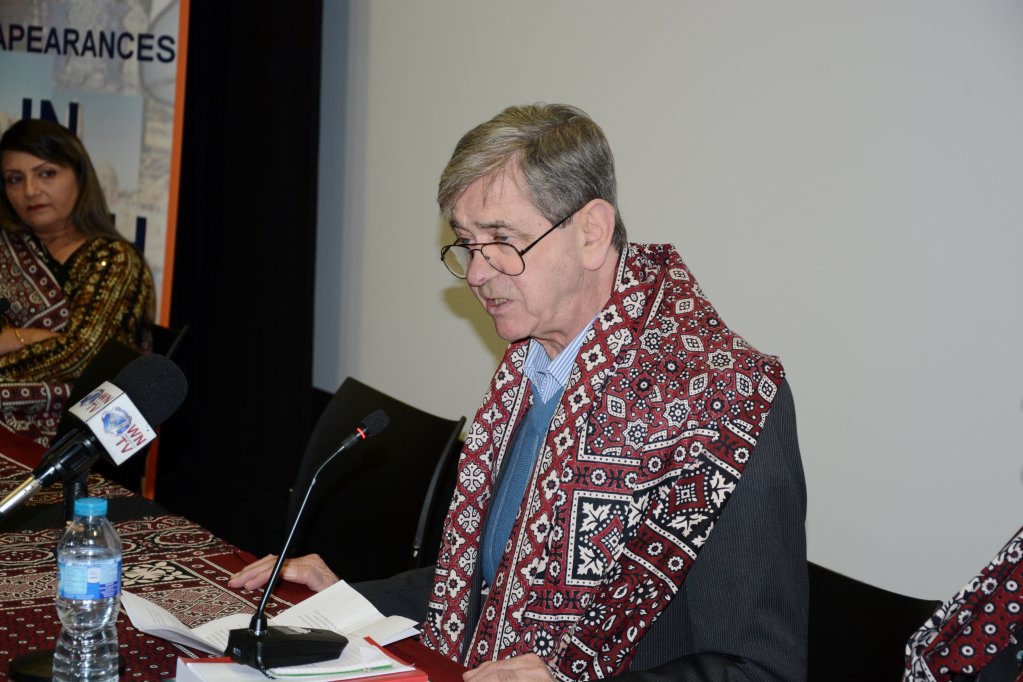
The others who spoke in the conference included, Mr. Tom Deegan of the Democracy Forum, Ms. Payman Assad, the Councilor of the Harrow, London. Mr. Raghuvir Singh Sodho, a Human Rights Activists from Rajasthan, India, Dr. Sarwar Shah, a researcher from the UK, Mr. Hajan Kalhoro, Dr Saghir Shaikh, Mr Lakhu Luhano, Dr Hidayat Bhutto of World Sindhi Congress, Mr. Abdul Sattar Soomro of Sindhi Sangat UK, Mr. Shoukat Kashmiri, President, UKPNP and Dr Zakir Sadat, Afghan Unity Movement, UK and Mr Syed Mujib Shah. Ms. Julie Ward, Member of European Parliament, UK also sent a video message to the Conference.
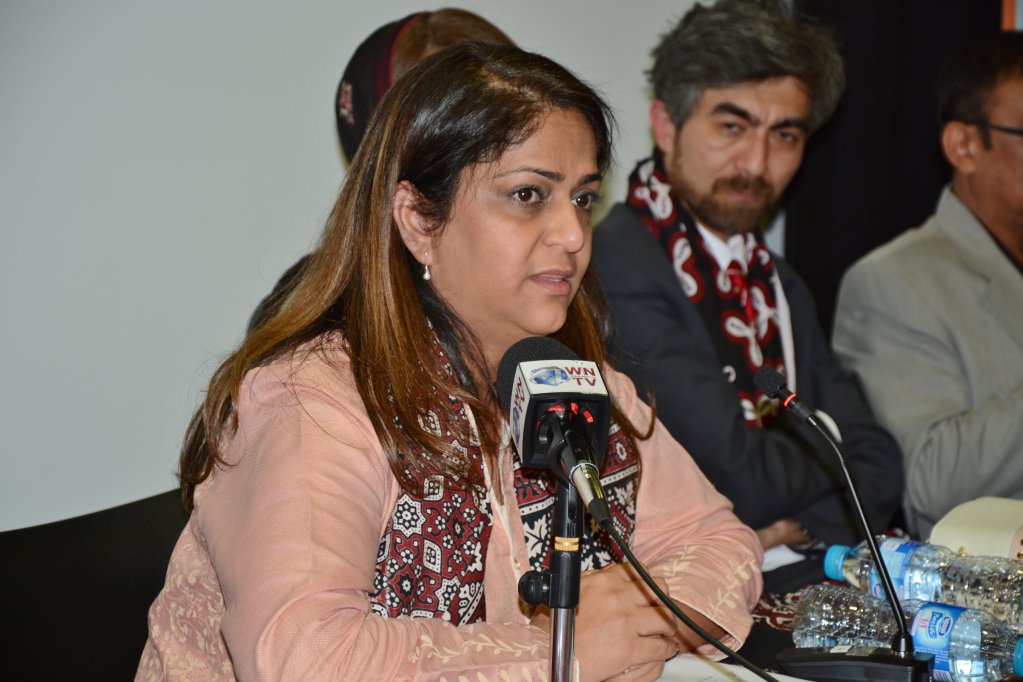
Dr. Rubina Shaikh the chairperson of the World Sindhi Congress, in her concluding speech, said this conference has successfully highlighted the major concerns faced by the Sindhis in Pakistan. The practice of enforced disappearances and extrajudicial killings, the increased Islamization in Sindh, the heinous practice of forced conversions of Sindhi Hindu girls, the misappropriation of natural resources including water and the futility of the construction dams on River Indus. World Sindhi Congres remains the most vocal and consistent voice of resistance outside Sindh advocating not only the human rights for Sindhis but other Oppressed Nations. She called for the unity among Diaspora to end the injustices and marginalization of Sindhis.
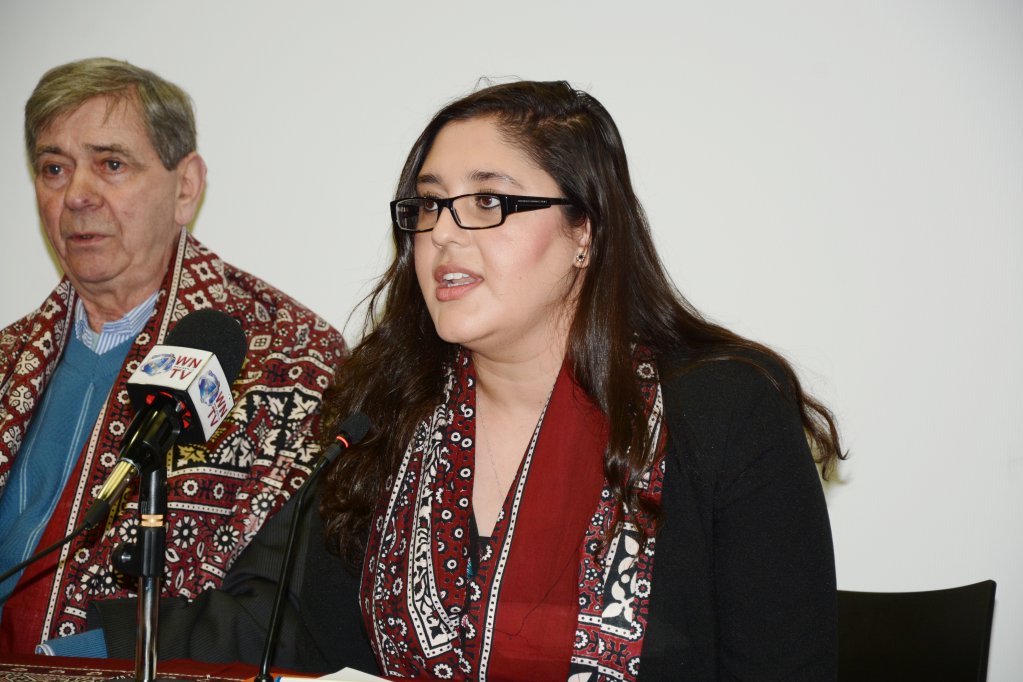
At the conclusion of the Conference, the delegates passed with consensus, several resolutions about the human rights situations in Sindh and Pakistan. Conference delegates asked the International community to recognize Sindh’s right to Self-Determination and to influence Pakistan to stop enforced disappearances and extra-judicial killings of human rights defenders. The conference also demanded from Pakistan to curb the persecution of Sindhi Hindus and forced conversions of Sindhi Hindus to Islam and to ban Saudi-sponsored religious madrasahs. Conference delegates condemned the ongoing unfair policies to unlawfully take Sindh’s natural resources, land, and water, as well as to regulate the internal migration within Pakistan which is resulting in Sindhis becoming a minority in their homeland. Also, conference delegates univocally questioned the legitimacy of the CPEC projects because it is imposed upon people without their consent or consultation. The Conference also rejected the initiatives to build the Diamer-Bhasha Dam on the Indus River. Sindh and indigenous people of Sindh are already suffering from the shortage of agriculture water and required discharge into the Arabian Sea to block the seawater intrusion into the mainland. Subsequently, building any new dam will make things worse for the livelihood of Sindhi people.
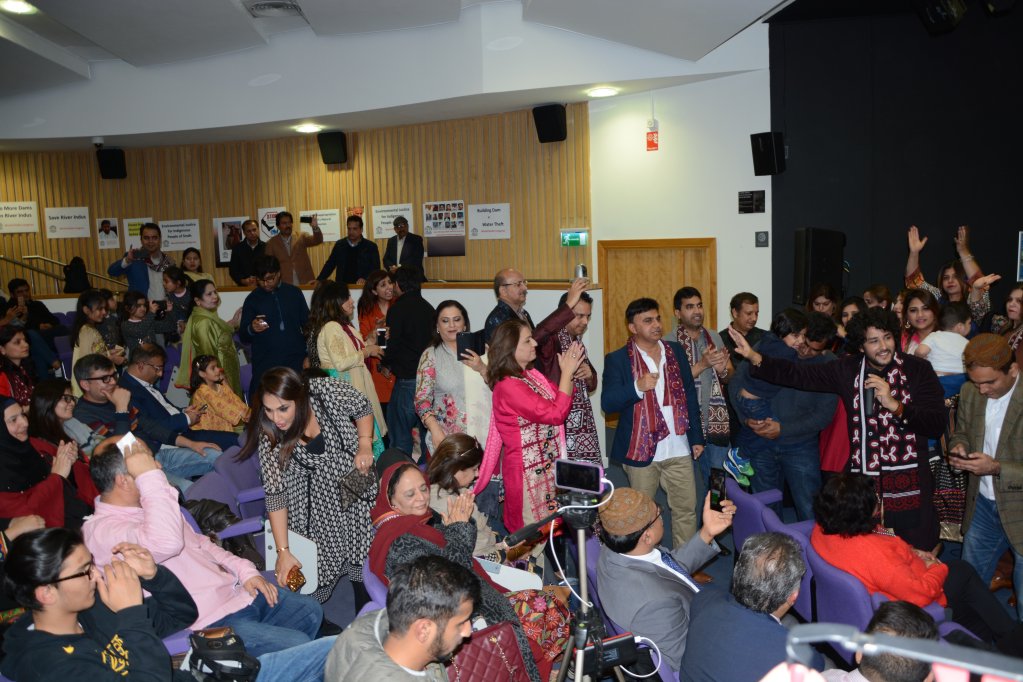
A live music concert of national and folk Sindhi songs was held at the end of the conference.
The videos of all the presentations at the 30th International Conference on Sindh could be viewed at:
https://www.youtube.com/playlist?list=PLyKfbki85FBfr_F8RjDGXOBEr2rpvGWxO
The live concert could be viewed at the following links:
https://www.facebook.com/WSC.UK/videos/308448293078831/
https://www.facebook.com/WSC.UK/videos/663835357349794/
https://www.facebook.com/WSC.UK/videos/281890979102167/?fref=mentions&__xts__[0]=68.ARAlRvwjHFUXEtF_24gQrejyIxcGea1ld8qQ5MoyTP32vMM0iWb3RSp9dSyFxTIbyFvA7-MmPS0R_6d1KiHbS6thNYxcq3020anjoJIHHXy-VuSXpct6JNwbB–im85s-aJhdDgJ_twkylqjqR0TZyASCJAZTRK3OYyWbZfP9jrRmQ2YvAehMco1Ea1a12Ug-CtVEfv9CyI_YvYeLUKRFX0rt80&__tn__=K-R

About The World Sindhi Congress (WSC): WSC is based in the UK, USA, Canada, and Sindh and is one of the most prominent human rights advocacy organizations for Sindh and Sindhis. The primary objective of WSC is to create a better understanding of the international community about the persecuted status of Sindhis in Pakistan and the Sindhi people’s struggle for human rights, including the right to self-determination. WSC is a registered company in the UK and the USA and is organized to carry out non-profit activities. For more information, visit www.worldsindhicong ress.org

